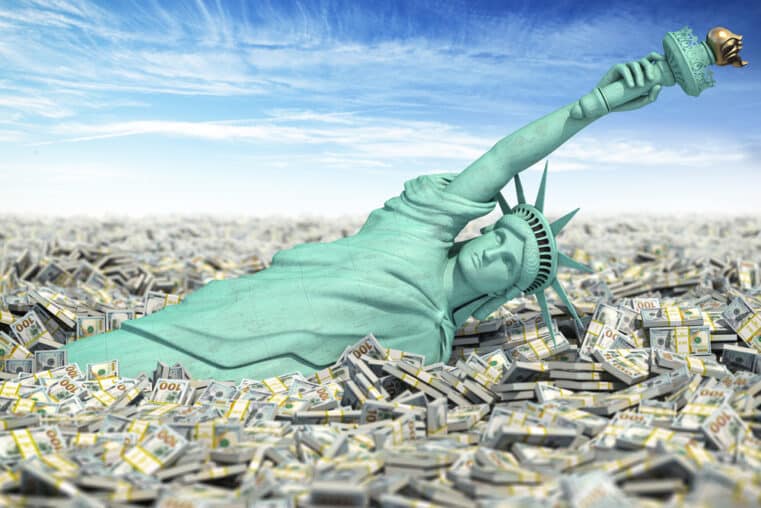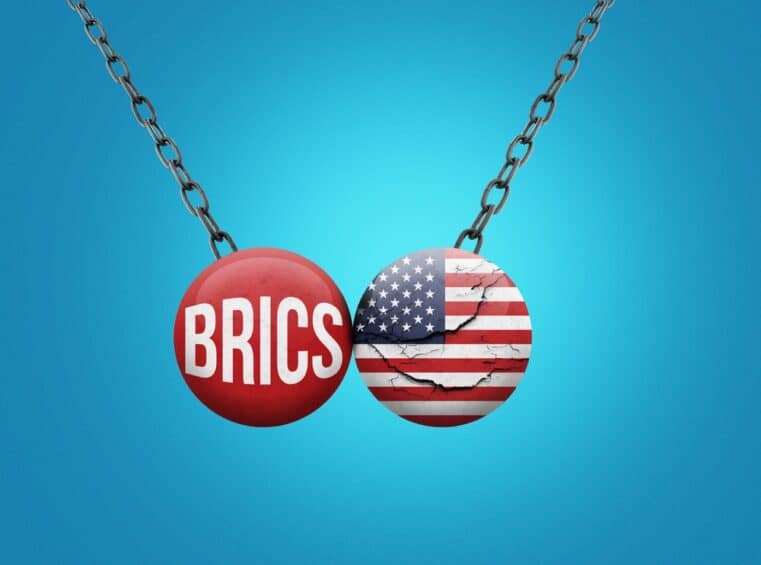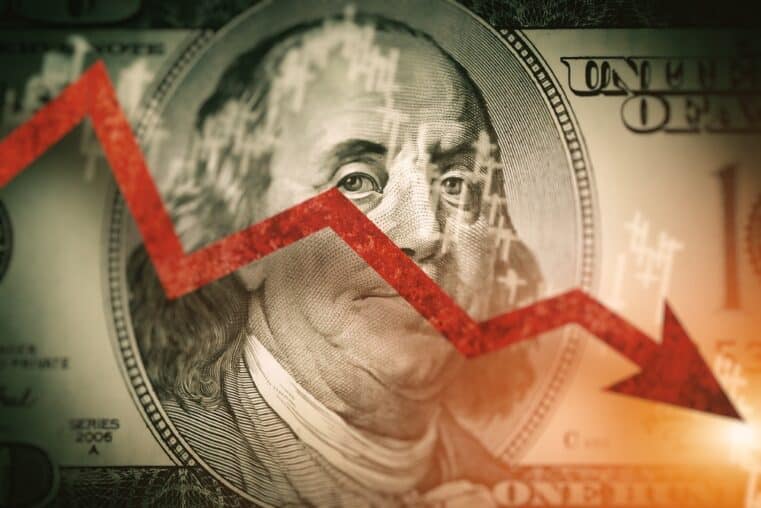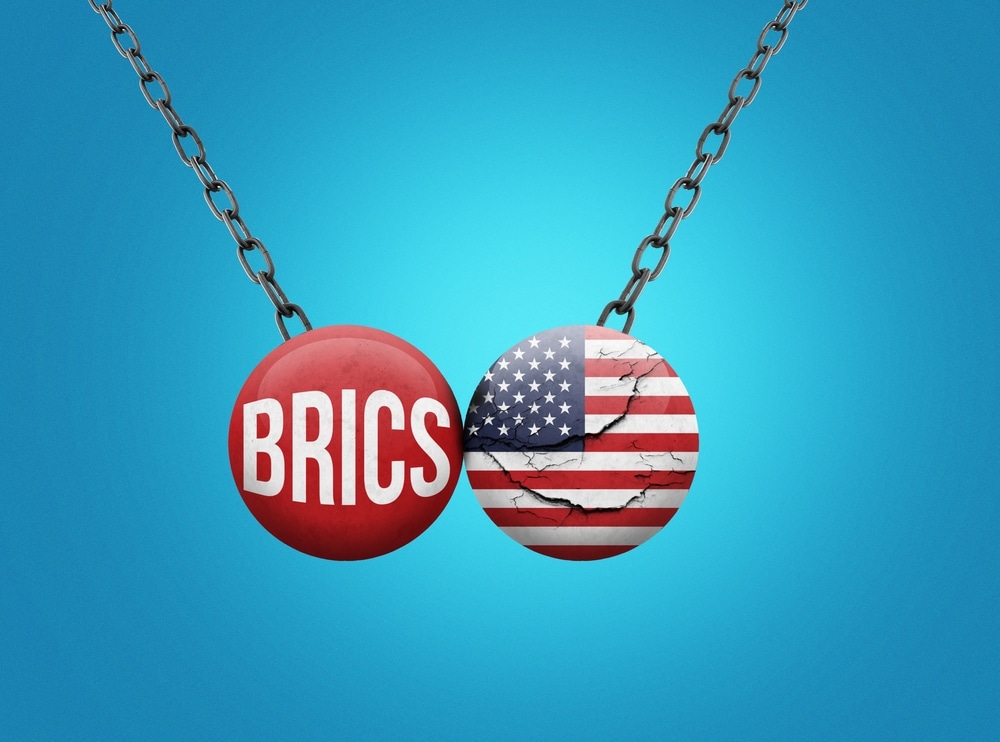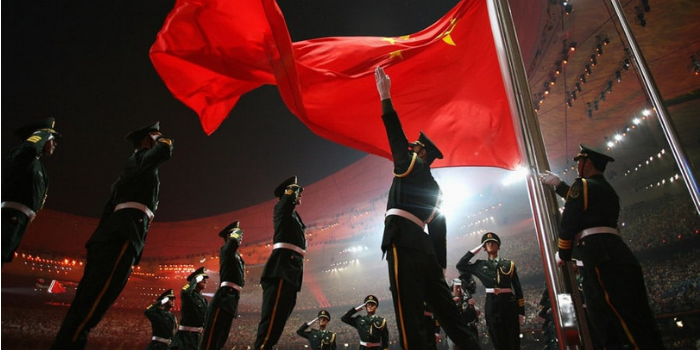
China to Unveil Its Devastating Economic Arsenal
The United States’ superpower status may be in large part be due to its military superiority, economic prowess, and culture of innovation. But as China’s power evolves in all three areas, the global balance of power that has stood well over a century is about to change.
How US Strength Can Be Made Irrelevant Without Being Defeated
Without a doubt, US military power occupies a position of global superiority. It is second to none. In contrast, China’s military power may come close, but it doesn’t quite match the reach and capabilities of US firepower.
But China’s military presence doesn’t have to match the scale of the US. Quite possibly, China’s military influence may be strongest concentrated where it matters most to China: that is, the East and the Pacific.
China seems to be well aware of this notion of relative superiority as that’s exactly what they are doing: securing their prospects for economic and military influence across one of the largest trade routes in Asia, the South China Sea, a region in which US military presence had been operating unchallenged since World War II.
Let’s talk about the US’ capacity to wage economic warfare. The US’ ability to punish other nations economically is predicated on US Dollar reserve currency status; both a major advantage and critical vulnerability. In other words, for foreign nations to inoculate themselves either against the hegemony of the dollar or against US sanctions, the dollar doesn’t necessarily have to be “dethroned.” Such nations need an alternative means of exchange.
And China’s successful deployment of petroyuan-gold futures may be used for that specific purpose. Its overall aim may not be to take over the dollar as the world’s reserve currency; rather, it aims to give other nations an alternative to trade oil for a paper currency that is partially convertible to gold.
Hence, without having to dethrone the dollar, China’s alternative might just render the dollar irrelevant to nations that are unable to or that prefer not to trade in dollars.
How the Trade War Potentially Strengthens China
Given the complex nature of trade economics, it’s extremely difficult if not impossible to quantify the consequences of a trade war. Even the most astute calculations may be considered, at best, speculative.
Most economists, particularly those in favor of free markets, will argue that all trade war participants may lose in the end. Of course, some participants may end up worse off than others.
As politicians, bureaucrats, and academics--none of whom have real (or at least direct) “skin in the game”--debate the issue of tariffs and trade wars, why not listen to those who do?
According to Soren Skou, head of Copenhagen-based Moller-Maersk (the world’s largest shipping company) has this to say:
“Tariffs could slow global annual trade growth by 0.1 to 0.3 percent”, though for the U.S. the effect could be “perhaps 3 or 4 percent.”
In his view, Trump’s tariffs may harm China, but it may do even more damage to the US, causing its economy to go into a recession.
Here’s what Andrew Mackenzie, CEO of BHP, in an interview with Bloomberg, has to add to the conversation:
“U.S. risks losing out from its curbs on trade as rival nations including China will seek to more business with each other…China will absolutely look to walk in that area and look to find exports with other people.”
In other words, the US may end up isolating itself from affected countries that may opt to bypass the US by trading amongst themselves.
Interestingly, a few days after this interview had been published, Bloomberg came out with a story, its headline reading “India Is Said to Plan to Fill Gap Left by U.S. Exports to China.” A new relation between two long-standing and bitter rivals?
But as every (not so) “kind word” goes further with a gun than just with a (not so) kind word alone, China is well aware that its prospect of securing its hegemony over the east and other emerging countries cannot go unaccompanied without exerting military influence over a region that may pose to be one of the US’ most critical geographical vulnerabilities: the South China Sea, its trade flows amounting to around $3.5 Trillion annually.
In short, Trump’s threats of an additional $200 Billion tariff on Chinese goods may only serve to strengthen China’s power and influence over a strategically significant region.
How the Trade War May Force China’s Hand to Deploy Its Unconfirmed 30,000-Tonne Gold Arsenal
In past articles, we’ve covered the Shanghai Cooperative Organization (SCO) comprised of China, Russia, and other nations in Asia and Central Asia. Formed in 2001, SCO is a security, economic, and political alliance. We can assume that America’s trade war on China necessarily impacts the countries participating in the SCO.
What Americans may or may not fully comprehend, however, is that, as a nation, we are waging war against over two billion people whose combined GDP accounts for over $15 Trillion. And taking into account the population of the BRI segment of BRICS, you have populations and economies that dwarf the entire “developed” western world. China’s economic development is at the hub of many of these emerging nations.
As China moves forth to expand its petroyuan/gold offerings and to exploit its own blockchain developments, to which gold may play a major role in its deployment, many of China’s anti-dollar partner nations may support the nation’s move (should it do so) to establish a new monetary system competitive with the US dollar.
According to estimates, China is sitting on 30,000 tonnes of gold. This estimate (upwards of 25,000 tonnes) was first reported by well-renowned metals analyst, Alasdair Macleod, Head of Research, GoldMoney, followed by Simon Hunt of Simon Hunt Strategic Services (co-founder of Brook Hunt, now absorbed into Wood Mackenzie), and reported by Dmitri Sudakov of Russian news website Pravda.ru, stating that “According to Duowei News, to ensure its domination, China is saving up gold. According to unconfirmed reports, China already has about 30,000 tons of the precious metal. If this is true, it means that China will be capable of bringing the US dollar down in an instant.”
Although China has not confirmed these estimates, it is rumored that China has been accumulating its gold reserves since 1979; most of it remaining undisclosed to the IMF. With China’s penchant for long-term planning, such an amount (if true) should not be surprising.
But should this estimate be correct, China would then be well-positioned to establish a new gold-backed (and possibly blockchain-based) monetary system in the East as a devastatingly competitive alternative to the dollar. In fact, China has already taken the initial steps to do so.
And despite all of America’s economic strength and military might, China and her partners may well have rendered America’s prowess irrelevant simply by side-stepping it. But central to this massive strategic maneuver is gold itself. And perhaps, owning gold is the only sure way to prepare for the consequences of this economic war.




